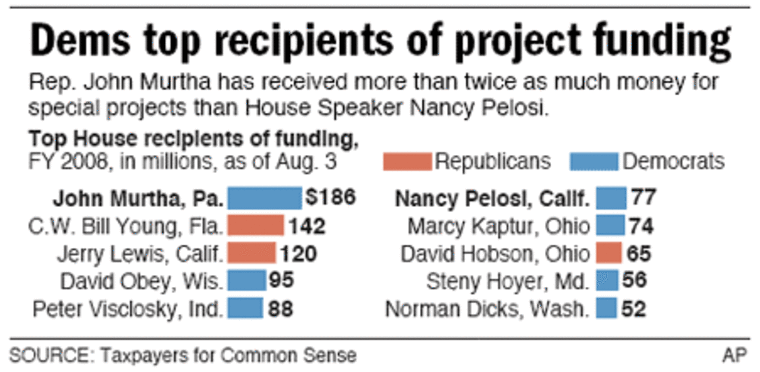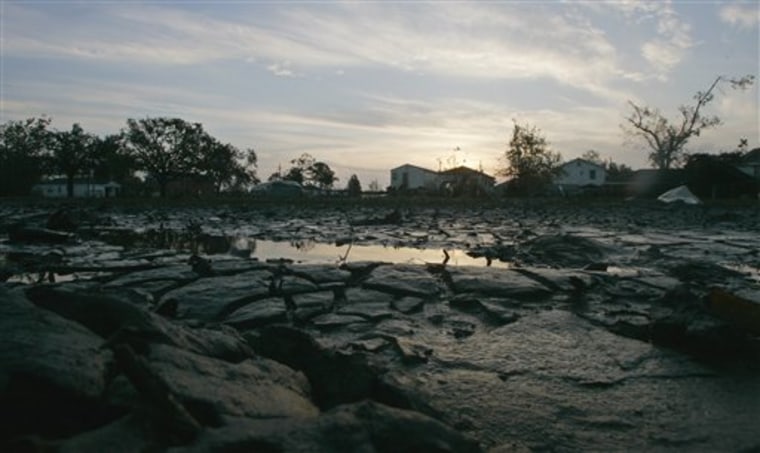The Senate, ignoring a veto threat from the White House, authorized $23 billion in water projects Monday, including work to restore the hurricane-ravaged Louisiana coast and Florida's Everglades.
The measure, passed by the House earlier this year, was approved 81-12. It now goes to President Bush, who threatened a veto after the bill's anticipated cost ballooned by $9 billion as projects were added in negotiations between the House and Senate.
The Senate vote was approved by a veto-proof margin and the bill's supporters said they are optimistic that if the president rejects the measure, his veto will be overridden by two-thirds vote.
'Pet projects'?
"He knows it's going to be overridden," said Sen. James Inhofe, R-Okla., a leading supporter of the widely popular measure that would give a green light - if money is approved - to hundreds of water projects in virtually every state.
"These programs are necessary," insisted Sen. Barbara Boxer, D-Calif., who rejected arguments by opponents that the legislation is stocked with unneeded pet projects pushed by individual lawmakers.
"This makes a substantial commitment to protecting our nation's wetlands, navigation routes and recreation opportunities. It is crucial to our country's economy," said Boxer at a news conference after the vote.
The legislation authorizes $3.6 billion for major wetlands and other coastal restoration, flood control and dredging projects for Louisiana, a state where coastal erosion and storms have resulted in the disappearance of huge areas of land.
The bill also includes nearly $2 billion for the restoration of the Florida Everglades, and nearly $2 billion for the Army Corps of Engineers to build seven new locks on the upper Mississippi and Illinois rivers.
Hurricane mitigation efforts
While these projects may be the most ambitious, the bill would give the go-ahead for hundreds of smaller dredging, wetlands restoration and flood control projects across the country. One senator after another called the projects critical for their respective states.
The Congressional Budget office in an analysis released Monday said the bill includes projects that if fully funded would cost $11.2 billion over the next four years and $12 billion in the decade after that. It said various projects related to hurricane mitigation in Mississippi and Louisiana, including assuring 100-year levee protection in New Orleans, would total $7 billion over the entire period.

Authorization without funding
The bill also calls for increased oversight of the Corps, requiring an outside review of water construction projects.
But critics called the bill - the first water system restoration and flood control authorization passed by Congress since 2000 - an example of Congress' push to approve lawmakers' pet projects without concern over costs or setting priorities. They said the Army Corps already has a backlog of $58 billion worth of projects and an annual budget of only about $2 billion to address them.
While the bill authorizes projects, it does not fund them.
"How many failed projects and wasted dollars does it take before we finally say we've had enough?" asked Sen. Russ Feingold, D-Wis., who called the legislation a "flawed, loaded bill" that doesn't attempt to set priorities on water projects.
Sen. Jim DeMint, R-S.C., complained that the bill contains about 20 projects that were added during the negotiations between the House and Senate but were not in the separate bills passed originally.
"The cost has exploded," complained DeMint. The legislation approved originally by the Senate would cost $14 billion and the House version would cost $15 billion.
Boxer, speaking to reporters before the vote, attributed the cost increase to some projects becoming more expensive, either because of essential changes or inflation. Also, she said, the final version includes necessary projects that had been approved by one chamber, but not the other.
Stephen Ellis, vice president of the Taxpayers for Common Sense, urged Bush to "draw a fiscal line in the sand ... and dare Congress to cross it."
"This bloated bill richly deserves to be stuck by the president's veto pen," said Ellis.
